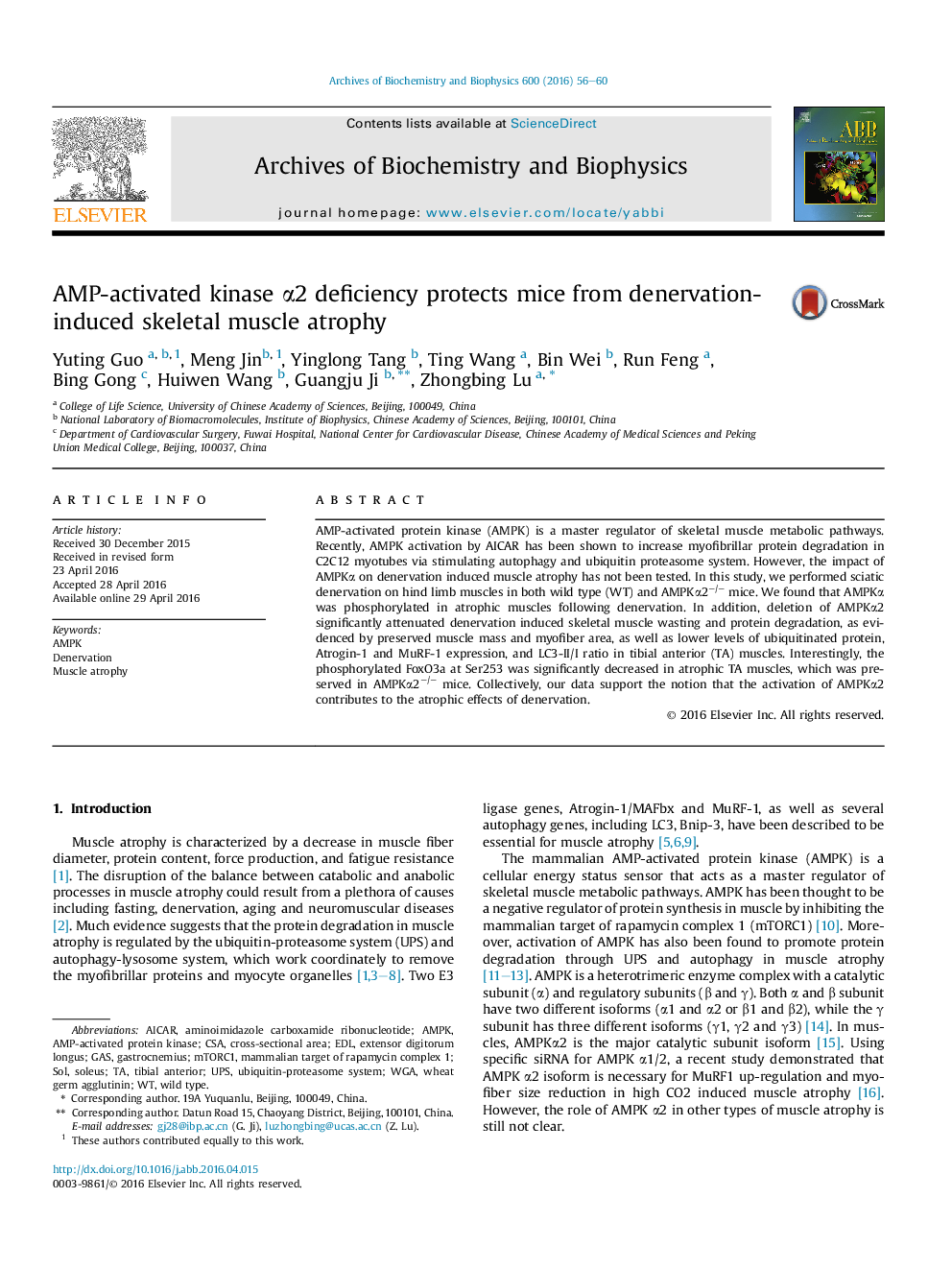| Article ID | Journal | Published Year | Pages | File Type |
|---|---|---|---|---|
| 1924720 | Archives of Biochemistry and Biophysics | 2016 | 5 Pages |
•AMPKα is phosphorylated in atrophic skeletal muscles.•AMPKα2 deficient TA skeletal muscles are resistant to denervation induced atrophy.•AMPKα2 deletion attenuates protein degradation in muscle atrophy.
AMP-activated protein kinase (AMPK) is a master regulator of skeletal muscle metabolic pathways. Recently, AMPK activation by AICAR has been shown to increase myofibrillar protein degradation in C2C12 myotubes via stimulating autophagy and ubiquitin proteasome system. However, the impact of AMPKα on denervation induced muscle atrophy has not been tested. In this study, we performed sciatic denervation on hind limb muscles in both wild type (WT) and AMPKα2−/− mice. We found that AMPKα was phosphorylated in atrophic muscles following denervation. In addition, deletion of AMPKα2 significantly attenuated denervation induced skeletal muscle wasting and protein degradation, as evidenced by preserved muscle mass and myofiber area, as well as lower levels of ubiquitinated protein, Atrogin-1 and MuRF-1 expression, and LC3-II/I ratio in tibial anterior (TA) muscles. Interestingly, the phosphorylated FoxO3a at Ser253 was significantly decreased in atrophic TA muscles, which was preserved in AMPKα2−/− mice. Collectively, our data support the notion that the activation of AMPKα2 contributes to the atrophic effects of denervation.
Graphical abstractFigure optionsDownload full-size imageDownload high-quality image (199 K)Download as PowerPoint slide
